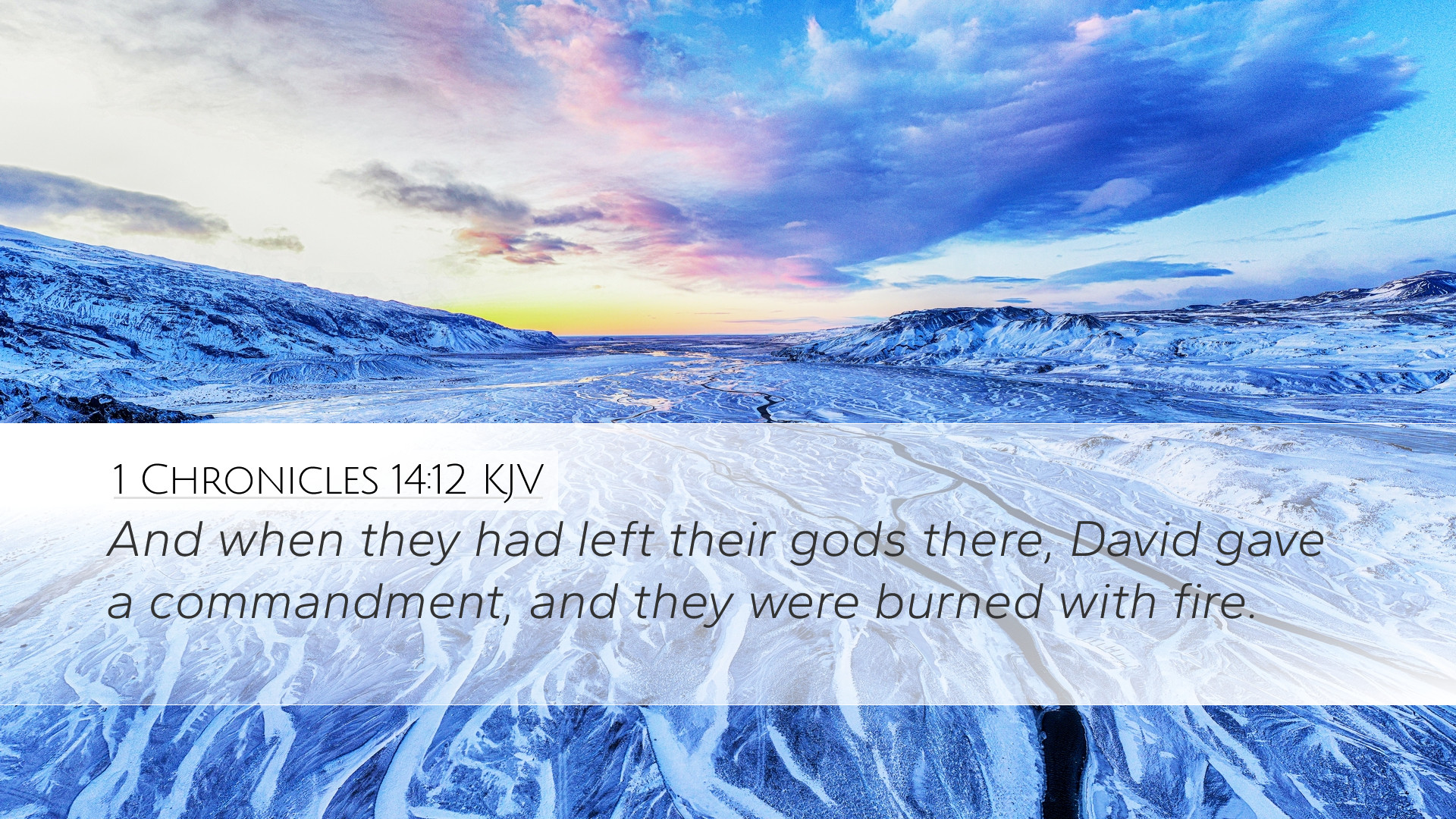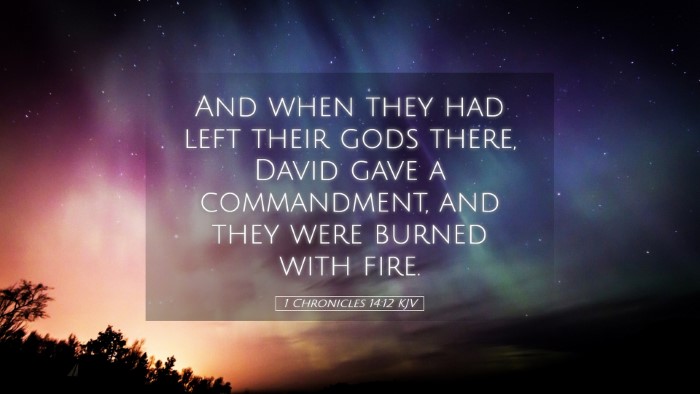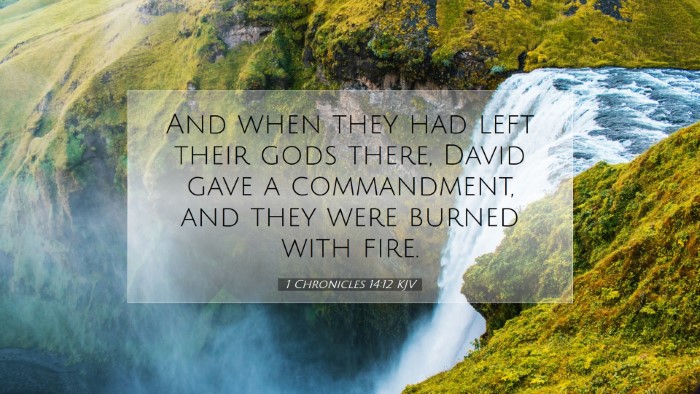Commentary on 1 Chronicles 14:12
1 Chronicles 14:12 states, "And when they had left their gods there, David gave a commandment, and they were burned with fire." This verse encapsulates a moment of significant transition and foreshadows the righteous eradication of idolatry in Israel, reflecting broader biblical themes of divine authority and the rejection of false gods.
Contextual Overview
This passage follows the account of David’s military successes and his establishment as king over Israel. The imagery and actions depicted here carry weighty implications for understanding the nature of worship, loyalty to God, and national identity.
Commentary Insights
David's Leadership and Command
Matthew Henry emphasizes the importance of David’s authority as a divinely appointed leader. In this instance, David exhibits decisive leadership by commanding the destruction of the Philistine gods. The act of burning these idols is not merely a military strategy but a theological statement, affirming the supremacy of Yahweh and publicly denouncing the idolatry that threatened Israel’s covenantal relationship with God.
The Nature of Idolatry
Albert Barnes elucidates the significance of the Philistine idols. The gods referenced were meant to symbolize strength and power against Israel, yet their abandonment in the wake of defeat emphasizes their futility. The act of destroying these idols serves as a recognized motion to eradicate any semblance of faith in entities that cannot deliver salvation. Such actions represent the necessity of removing false idols from one’s life and recognizing that trust should wholly reside in the living God.
Theological Implications
Adam Clarke offers reflections on the broader theological implications of this scene. He notes that the act of burning the idols captures a vibrant contrast to the worship of Yahweh, who alone is sovereign. The imagery of destruction aligns with prophetic calls throughout Scripture that implore the people of God to abandon idolatry. Clarke draws parallels to contemporary theological discourse regarding the relevance of this passage in confronting modern forms of idolatry, which can manifest in various societal obsessions.
Applications for Modern Believers
- Call to Righteousness: Believers are reminded of their commitment to uphold the holiness of God, ensuring that their lives reflect the rejection of any modern idols, be they materialism, power, or self.
- Leadership and Influence: Church leaders are encouraged by David’s decisive action to lead their congregations in a way that reflects the ongoing battle against false beliefs and ideologies.
- Worship and Reverence: The destruction of idols speaks to the importance of authentic worship, compelling believers to align their hearts and minds in singular devotion to God.
Conclusion
In 1 Chronicles 14:12, we observe a critical intersection of faith and action, where David’s leadership profoundly illustrates the biblical call to forsake idolatry. The insights provided by Henry, Barnes, and Clarke illuminate how this verse profoundly influences the theological landscape of Israelite worship and continues to resonate powerfully in the lives of believers today. The imperative to root out false worship remains relevant, as it invites individuals to return wholeheartedly to the worship of the One True God, engaged in a relationship characterized by fidelity and love.


